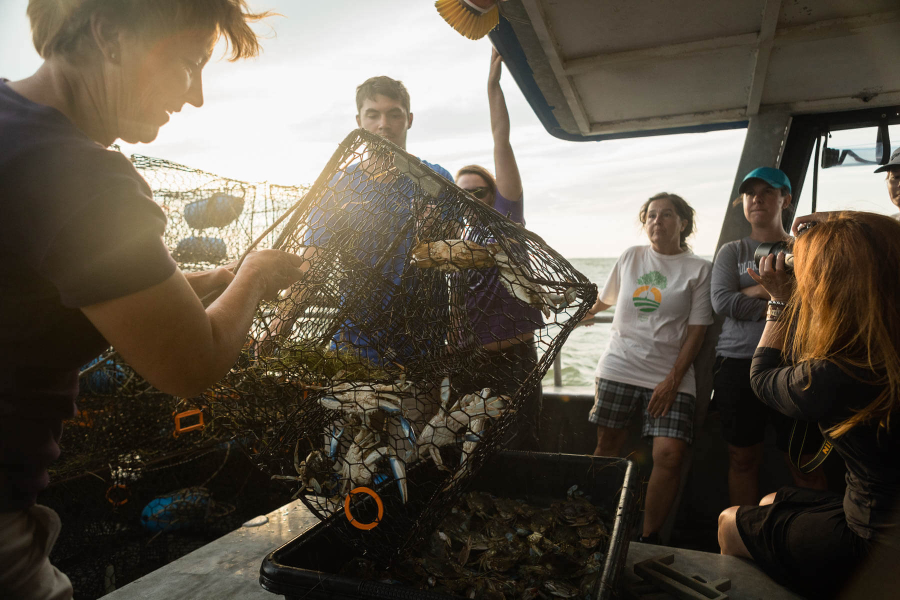Making education meaningful
New online course helps teachers provide their students with Meaningful Watershed Educational Experiences

The Chesapeake Bay Program is excited to announce the launch of a free online course created to provide in-depth understanding of the Meaningful Watershed Educational Experience (MWEE) for all educators. The course, MWEE 101, is housed on Chesapeake Exploration, a learning resource provided by the National Oceanic and Atmospheric Administration.
The course is a free resource that is based on An Educator’s Guide to the Meaningful Watershed Educational Experience and comprises three lessons:
- Why MWEEs? This lesson will explore the history, rationale and educational context of the MWEE as well as explore case studies of how three teachers have embedded MWEEs in their classes.
- What Makes a MWEE? This lesson will follow the three case studies and introduce the components of the MWEE.
- Planning and Evaluating MWEEs. Using the three case studies again, this lesson will delve into the planning and evaluating of MWEEs.
Throughout the course, participants will gain an extensive understanding of the essential elements and supporting practices by following a series of case study videos and by looking at examples of completed planning and implementation tools including the Environmental Literacy Model.
In the coming months, this course will be offered for continuing education credits in Maryland, Virginia, Pennsylvania and Delaware.
In late 2019, the Bay Program will roll out a series of free, tailored modules that build on the MWEE 101 course to engage participants in actually planning and implementing their MWEE while considering more specifics like state standards, local environmental issues and community partners and resources. In the future, the Bay Program’s Education Workgroup also hopes to create a module for administrators and non-formal organizations to explore how the MWEE can be embedded systemically in support of the Bay Program’s Environmental Literacy Goal.
These tailored courses will be available on Bay Backpack, an online resource for teachers complete with information about MWEEs, lesson plans and grant opportunities. Visit BayBackpack.com to learn more about MWEEs.

Comments
Hi Christal, whether or not you can receive credits depends on your specific location within Western Virginia. Someone from the Bay Program will be in touch with you to provide more details!
I live in WV and am very interested in this program. I need 6 continuing education credits for the next schyyear, do you have any information?
Thank you!
Your comment has been received. Before it can be published, the comment will be reviewed by our team to ensure it adheres with our rules of engagement.
Back to recent stories